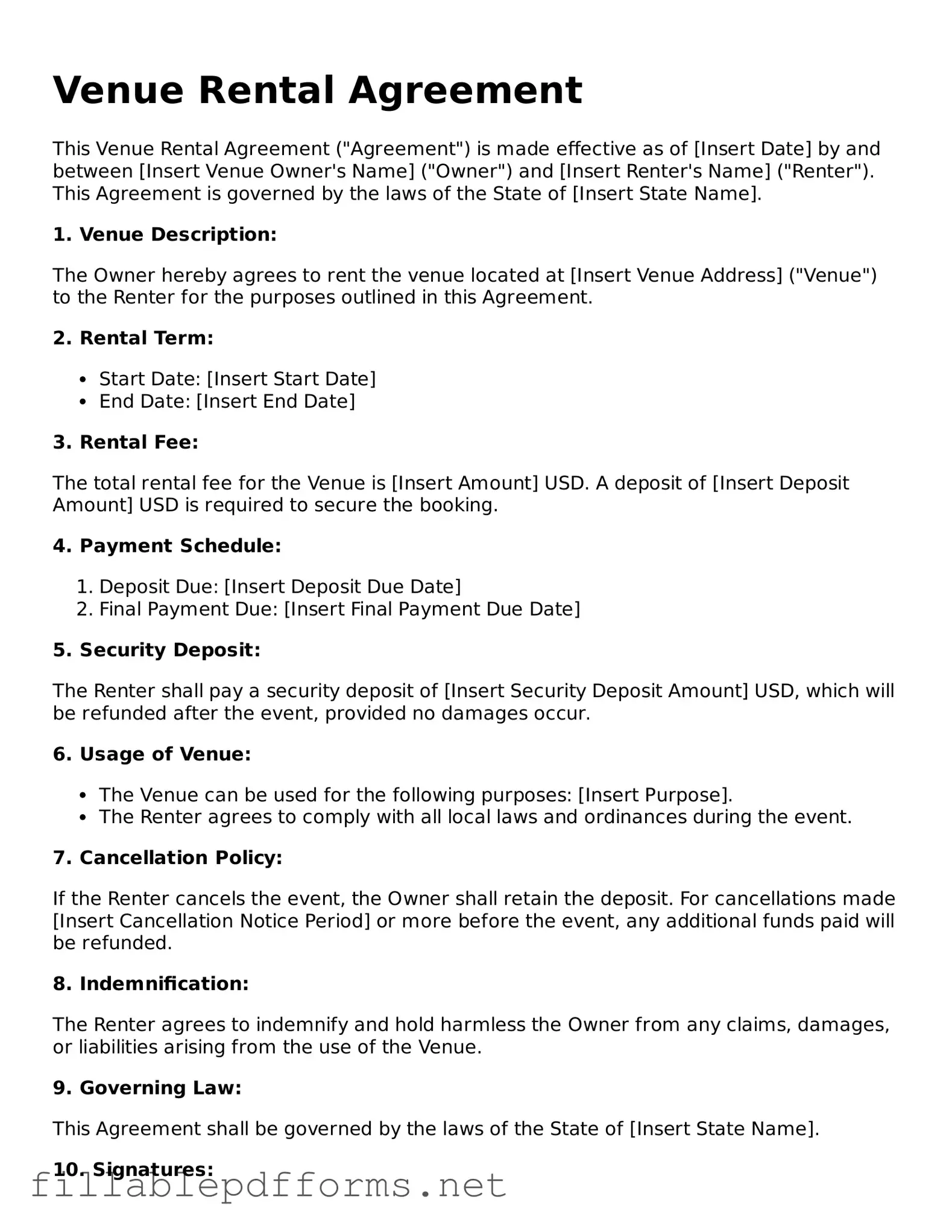Blank Venue Rental Agreement Template
A Venue Rental Agreement is a legal document that outlines the terms and conditions under which a venue can be rented for an event. This agreement protects both the venue owner and the renter by clearly defining responsibilities, payment terms, and usage guidelines. Understanding the components of this form is essential for ensuring a smooth and successful event experience.
Launch Editor Here

Blank Venue Rental Agreement Template
Launch Editor Here

Launch Editor Here
or
▼ Venue Rental Agreement PDF
Almost there — finish the form
Complete Venue Rental Agreement online fast — no printing, no scanning.